
Daniel Daylight
Community Manager Mt Druitt JustReinvest NSW, Indigenous Knowledge
Daniel is a proud Gamilaraay (NSW) man who has family ties to the Gubi Gubi nation (QLD). Daniel has a passion for helping Aboriginal children and youth caught in the criminal justice system and has spent his working life in the justice sector. He worked on the development of the Youth Koori Court (YKC) including consultation with community and development of the program with other stakeholders.
He believes if the appropriate support mechanisms are placed around our young Aboriginal people in the Justice system and we can empower them, then they can and will be among our leaders in the future. He is currently the Manager for Just Reinvest NSW in Mt Druitt. Daniel is also a Director of the Redfern Aboriginal Medical Service board and lifelong member of the organisation.
Less ![]()
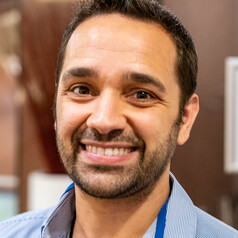
Daniel Douglas
Lecturer in Sociology, Trinity College
Douglas' research focuses on student access and success in higher education, specifically at community colleges. His published work discusses alternatives to college remedial placement, the role of mathematics in post-secondary education, and college and career pathways in STEM. He is also interested in the non-degree routes to workforce development. Douglas has worked on research and evaluation for the US Department of Education, US Department of Labor, and National Science Foundation. He has also partnered with the non-profit advocacy group Complete College America.
Less ![]()
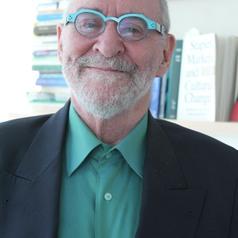
Daniel Drache
Professor emeritus, Department of Politics, York University, Canada
My published work and research is on international political economy and its institutions, global inequality and development, counter-publics, NAFTA, economic integration and social movements. My most recent book, Has Populism Won?The War on Liberal Democracy , is co-authored with Marc D. Froese,ECW, 2022.
Less ![]()
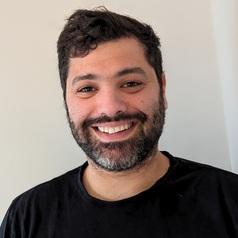
Daniel Drage
Lecturer in Environmental Health, University of Birmingham
Daniel finished his BSc in Environmental Science in 2009 at the University of Birmingham where he focused his final year on in-stream ecology and environmental chemistry. He remained at Birmingham to study for his PhD, which was awarded in 2013. He investigated the presence of brominated flame retardants and by-product emissions in the steel industry and their fate in the environment – which resulted in several publications in high impact scientific journal
Upon receiving his PhD he accepted a job as a Postdoctoral Research Fellow at the University of Queensland, Brisbane, Australia. Here he worked on several projects including the modelling of persistent organic pollutants (POPs) and emerging contaminants in wastewater and landfills.
Since returning to the University of Birmingham, Daniel has worked on a range of projects funded by the Environmental Protection Agency of Ireland – including WAFER, SAFER and FUEL which have investigated brominated flame retardants (BFRs), organophosphorus flame retardants and perfluorinated alkyl substances (PFAS) in the waste industry, as well as ELEVATE which investigated human exposure to BFRs and PFAS in indoor environments.
Daniel is currently the Programme Lead for MSc Environmental Health and MSc Public and Environmental Health Sciences, both accredited by the Chartered Institute of Environmental Health (CIEH). He is involved in teaching on these programmes as well as the MSc Health, Safety and Environment Management; and BSc Environmental Science.
Daniel is also a Member of the Chartered Institute of Environmental Health (MCIEH), holds a postgraduate certificate in higher education (PGCHE) and is a Fellow of the Higher Education Academy (FHEA).
Less ![]()
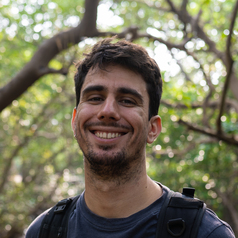
Daniel Dunn
A/Prof of Marine Conservation Science & Director of the Centre for Biodiversity and Conservation Science (CBCS), The University of Queensland
I am an Associate Professor in the School of the Environment, and the Director of the Center for Biodiversity and Conservation Science at the University of Queensland. My research focuses on how migratory species use and connect the ocean, how we can use spatial management measures to help conserve them, and how we need to work together on regional and global scales to manage them. I have worked with seven UN Conventions and organisations to try to provide the information and tools necessary to support a healthy ocean.
My research focuses on applying ecological and biogeographical theory to develop applied solutions to natural resource management and conservation problems in the ocean across a range of scales. I am particularly interested in developing and disseminating actionable information to inform conservation planning in areas beyond national jurisdiction and improving environmental governance of that “other” half of our planet.
Less ![]()
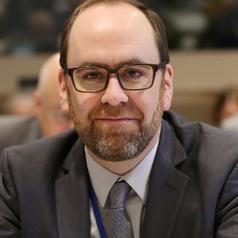
Daniel Dunn1
A/Prof of Marine Conservation Science & Director of the Centre for Biodiversity and Conservation Science (CBCS), The University of Queensland
I am an Associate Professor in the School of the Environment, and the Director of the Center for Biodiversity and Conservation Science at the University of Queensland. My research focuses on how migratory species use and connect the ocean, how we can use spatial management measures to help conserve them, and how we need to work together on regional and global scales to manage them. I have worked with seven UN Conventions and organisations to try to provide the information and tools necessary to support a healthy ocean.
My research focuses on applying ecological and biogeographical theory to develop applied solutions to natural resource management and conservation problems in the ocean across a range of scales. I am particularly interested in developing and disseminating actionable information to inform conservation planning in areas beyond national jurisdiction and improving environmental governance of that “other” half of our planet.
Less ![]()
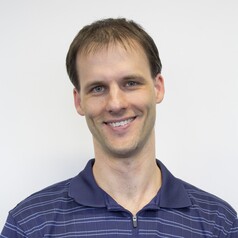
Daniel Eldridge
Senior Lecturer in Chemistry, Swinburne University of Technology
Dr Daniel Eldridge is a senior lecturer in chemistry at Swinburne University. He teaches in a variety of subjects covering surfaces and colloids, water science and the chemistry of everyday products.
Less ![]()
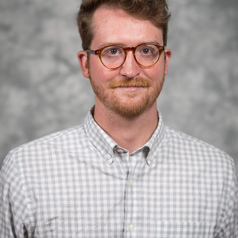
Daniel Ernst
Assistant Professor of English, Texas Woman's University
I am an Assistant Professor of Rhetoric at Texas Woman's University, where I teach courses in writing, rhetoric, communication, and grammar. My research concerns automated language technologies and generative AI, particularly as they relate to the teaching and learning of writing.
Less ![]()
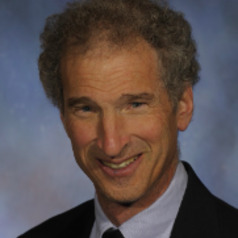
Daniel Feller
Emeritus Professor of History, University of Tennessee
Daniel Feller is Distinguished Professor in the Humanities Emeritus and Editor/Director Emeritus of The Papers of Andrew Jackson. Feller came to UT as Professor of History and Jackson project director in 2003 and continued until his retirement in 2020. Previously he had taught for 17 years at the University of New Mexico in Albuquerque and before that for three years at Northland College in Ashland, Wisconsin.
Professor Feller’s scholarly interests encompass mid-nineteenth-century America as a whole, with special attention to Jacksonian politics and the coming of the Civil War. Besides the publications listed below, he has contributed to reference works and compilations including the Oxford Companion to United States History, Reader’s Guide to American History, Dictionary of American History, American National Biography, The Encyclopedia of American Political History, and the AHA Guide to Historical Literature. Feller’s critical essays and review articles have appeared in Reviews in American History, Documentary Editing, Tennessee Historical Quarterly, and on H-SHEAR. For 14 years Feller served as Conference Coordinator for the Society for Historians of the Early American Republic (SHEAR), and in 2018 he was the recipient of SHEAR’s Distinguished Service Award. His other recognitions include the Knoxville Area Transit Most Valuable Passenger Award and the Thomas Jefferson Prize of the Society for History in the Federal Government, awarded in 2017 for Volume X of The Papers of Andrew Jackson. Feller has spoken widely to public audiences and educators on Jacksonian Democracy, on Andrew Jackson’s presidential banking and Indian policies, and on slavery and the coming of the Civil War. He has given several presentations as a Distinguished Lecturer for the Organization of American Historians, and in 2000 he was a Commonwealth Fund Lecturer in American History at University College London. His major current project is to complete a study of Benjamin Tappan, a Jacksonian politician, scientist, social reformer, and freethinker.
Education
Ph.D., University of Wisconsin, 1981
Selected Publications
Editor, The Papers of Andrew Jackson, Volumes VII-XI, 1829–1833 (University of Tennessee Press, 2007–2019)
Editor, Harriet Martineau’s 1838 Retrospect of Western Travel (M. E. Sharpe, 2000), abridged with Editor's introduction, notes and, index.
The Jacksonian Promise: America, 1815-1840 (Johns Hopkins University Press, 1995)
The Public Lands in Jacksonian Politics (University of Wisconsin Press, 1984)
Less ![]()
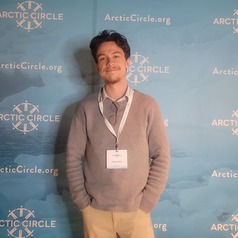
Daniel Fillion
Candidat au doctorat en océanographie, Université du Québec à Rimouski (UQAR)
-Baccalauréat (2018-2021) en chimie de l'Université Laval
-Maîtrise en chimie (2021-2023), spécialisation en géochimie aquatique, sous la supervision du prof. Raoul-Marie Couture à l'Université Laval
-Candidat au doctorat en océanographique, spécialisation en géochimie des milieux polaires extrêmes, sous la supervision du prof. André Pellerin à l'ISMER (UQAR).
Less ![]()
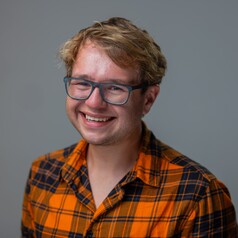
Daniel Ford
Research Fellow in Biological and Physical Oceanography, Earth and Environmental Science, University of Exeter
Daniel Ford is a postdoctoral research fellow based at the University of Exeter Penryn campus in Cornwall, UK. His current research focusses on topics including air-sea CO2 exchange in the global ocean, the biological controls on the CO2 exchange and the ocean processes that drive variations in the global ocean CO2 sink. Internationally, he provides one of the ocean CO2 sink estimates to the Global Carbon Budget.
Daniel has a PhD from the University of Exeter, UK.
Less ![]()

Daniel Freedman
Dean of the College of Science, Technology, Engineering, Mathematics & Management, University of Wisconsin-Stout
Less ![]()
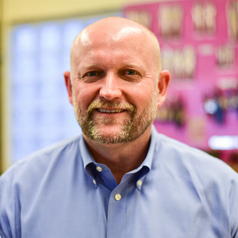
Daniel Frey
Professor of Mechanical Engineering, Massachusetts Institute of Technology (MIT)
Dan is a professor of mechanical engineering and the co-director of experimental design research in the SUTD-MIT International Design Center, and the faculty advisor for suitability research at the MIT-based Comprehensive Initiative on Technology Evaluation (CITE).
He is actively involved in design of engineering devices for the developing world, and has worked intensively with colleagues, administrators, and the Singapore Ministry of Education to establish a major new research center for engineering design.
Dan holds a PhD in mechanical engineering from MIT, an MS in mechanical engineering from the University of Colorado, and a BS in aeronautical engineering from Rensselaer Polytechnic Institute.
Less ![]()
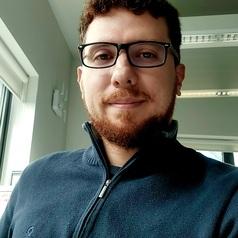
Daniel Garcia-Jaramillo
PhD researcher, Centre for Behavioural Science and Applied Psychology, Sheffield Hallam University
Daniel Garcia-Jaramillo is a PhD researcher at Sheffield Hallam University. His research focuses on discourses surrounding social protests in the UK. Specifically, he aims to examine the underlying ideologies present in politicians' rhetoric, and how the way they talk about protests impact the potential for fair, just, and more equitable futures.
Less ![]()

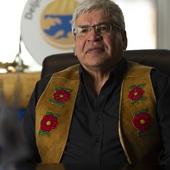
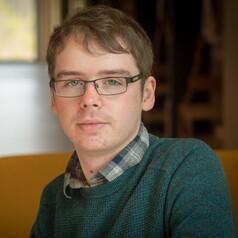
Daniel Gettings
PhD Candidate, Department of History, University of Warwick
I am currently a PhD candidate in the Department of History at the University of Warwick supervised by Professor Beat Kümin. My PhD is titled "Sustaining body and soul: the early modern English and their water, 1550 - 1750". It focuses on the cultural understandings of water and the relationship that early modern people had with it. Through this it hopes to explore aspects of how early modern people understood themselves, the world around them, and their place in it. My broader research interest include water, drinking history, and religious history, particularly the history of popular beliefs.
Less ![]()
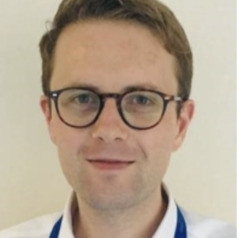
Daniel Gover
Senior Lecturer in British Politics, Queen Mary University of London
Daniel joined Queen Mary University of London as a lecturer in 2019. His research focuses on British politics, with a particular emphasis on the UK parliament and constitution.
Prior to taking up this position he has held a number of research roles. Between 2011 and 2015, and again in 2019, he worked at the Constitution Unit at University College London. His research there included a major investigation of the UK parliament’s policy impact on government legislation, resulting in his co-authored monograph Legislation at Westminster (OUP, 2017), and parliament’s role on Brexit. Between 2015 and 2016 he worked at the Mile End Institute at Queen Mary, researching the introduction of ‘English Votes for English Laws’ in the House of Commons. He also completed his PhD at Queen Mary, on the topic of Christian pressure groups in UK policymaking.
Less ![]()
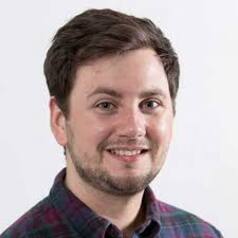
Daniel Green1
Assistant Professor, School of Energy, Geoscience, Infrastructure and Society, Heriot-Watt University
Daniel is an Assistant Professor in Nature-based Solutions based at the Heriot-Watt University Edinburgh campus. Prior to working at Heriot-Watt University, Daniel was based at the National Green Infrastructure Facility at Newcastle University, UK working as a PDRA on the EPSRC Urban Green DaMS (Design and Modelling of SuDS) project.
Daniel completed his PhD at Loughborough University, which focused on urban rainfall-runoff responses using physical and numerical modelling approaches. He has worked as a NERC-funded PDRA focusing on emergency responder accessibility during flood events at Loughborough University, as well as a Senior Lecturer in Flood Risk Management at the University of Chester.
Daniel’s research interests can be divided into three core areas:
Monitoring, assessing and quantifying the influence/performance of blue-green infrastructure and nature-based solutions to mitigate and attenuate flood risk in urban areas; flood risk analysis and resilience assessment, exploring the impact of fluvial and surface water flood events on urban infrastructure; modelling of urban surface water flooding caused by intense precipitation events using numerical and experimental, rainfall simulator based approaches.
Less ![]()
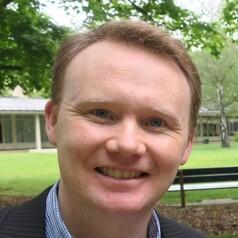
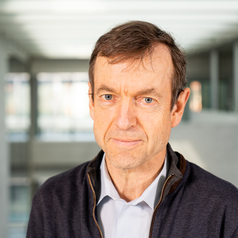
Daniel Gros
Professor of Practice and Director of the Institute for European Policymaking, Bocconi University
Daniel Gros is Professor of Practice at Bocconi University and Director of the Institute for European Policymaking at Bocconi University.
Between 2020 and 2022 he was Distinguished Fellow and Member of the Board of the Centre for European Policy Studies (CEPS). Before that, was the director of CEPS since 2000. In 2020, he held a Fulbright fellowship and was a visiting professor at the University of California, Berkeley. In March-June, 2022 he was visiting Research Fellow at the Robert Schuman Centre of the European University Institute, Florence.
Gros is also currently an adviser to the European Parliament. Previously he worked at the International Monetary Fund and collaborated with the European Commission as economic adviser to the Delors Committee, which developed plans for the euro. He has been a member of high-level advisory bodies to the French and Belgian governments and advised numerous central banks and governments, including Greece, the United Kingdom, and the United States at the highest political level.
He has published extensively on international economic affairs, including on monetary and fiscal policy, exchange rates, banking, and climate change. He is the author of several books and editor of Economie Internationale and International Finance. He has taught at several leading European universities and contributes a globally syndicated column on European economic issues to Project Syndicate. He holds a PhD in economics from the University of Chicago.
Less ![]()

Daniel Heller
Kronhill Senior Lecturer in East European Jewish History, Monash University
Dr. Daniel Heller is a Senior Lecturer in the School of Historical, Philosophical and International Studies (Monash University). He has written on the Israeli-Palestinian conflict, and teaches undergraduate units on the topic.
Less ![]()
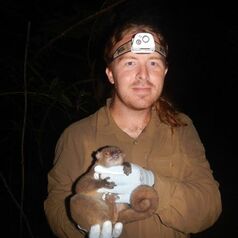
Daniel Hending
My current research focuses on how and why African Elephants use seismic communication. My other ongoing research interests include the ecology and conservation of tropical forest habitat and its resident vertebrate fauna, particularly cheirogaleid lemurs in Madagascar. Additionally, I am interested in the use of bioacoustics for non-invasive biodiversity assessment at the ecosystem level and to disentangle the cryptic species complex.
Less ![]()
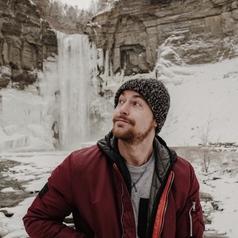
Daniel Hooper
Postdoctoral Scholar, Bioinformatics and Computational Biology, American Museum of Natural History
I am a Gerstner Postdoctoral Scholar in Bioinformatics & Computational Biology at the American Museum of Natural History in New York City. I study the genetics of adaptation and the process of speciation in birds.
Less ![]()
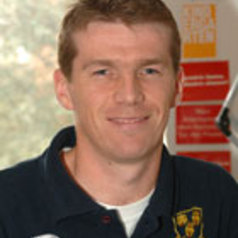
Daniel Hough
Dan Hough graduated from the University of Newcastle upon Tyne in 1997. On leaving the North-East he headed for the Institute for German Studies at the University of Birmingham to complete his PhD. Following the completion of his doctoral studies in 2000 he spent another two years in Birmingham working on a Leverhulme Trust funded research project with Charlie Jeffery and then as an ESRC Postdoctoral Fellow. He then moved to the University of Nottingham for a year before joining the department in the Autumn of 2003.
In his role as Director of the Sussex Centre for the Study of Corruption (SCSC) Dan regularly works with and advises practitioners in the anti-corruption community.
Dan also serves as the Chairman of the International Association for the Study of German Politics having previously served as both Secretary (2007-10) and Treasurer (2004-07)
Less ![]()
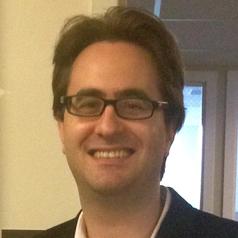
Daniel Hoyer
Senior Researcher, Historian and Complexity Scientist, University of Toronto
Dan is an historian and complexity scientist. He is Senior Researcher and Project Manager of Seshat: Global History Databank.
He is also Affiliate Faculty at the Complexity Science Hub, Vienna, in the Social Complexity and Collapse Research Group, and Senior Researcher in the Social-AI lab at the University of Toronto.
His current research employs comparative historical and social scientific methods to explore the causes and limiting factors to economic growth, societal development, and general wellbeing.
In particular, he is interested in understanding the role of prosocial cultural traits in promoting equitable distribution of resources and limiting predatory activity in past societies.
He holds a PhD in Classics from New York University, where he studied economic and social development in the high Roman Empire.
Less ![]()
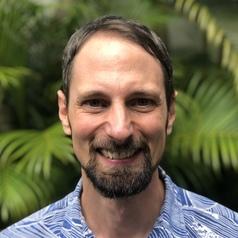
Daniel Huber
Astronomer, University of Sydney
I am ab Future Fellow at the University of Sydney and an Associate Professor at the University of Hawaii. My research focuses on the study of stars and exoplanets in our galaxy.
Less ![]()
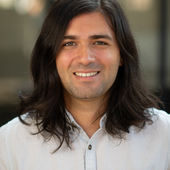
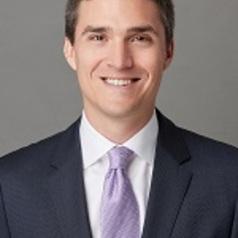
Daniel Kiel
FedEx Professor of Law; Author of The Transition: Interpreting Justice from Thurgood Marshall to Clarence Thomas, University of Memphis
Daniel Kiel is the FedEx Professor of Law at the University of Memphis, where he teaches Property, Constitutional Law, and Education & Civil Rights. His scholarly work centers of education law, as well as constitutional questions of citizenship and justice.
He is the director of The Memphis 13, a documentary film sharing the stories of the first graders who first desegregated schools in Memphis, and the author of The Transition: Interpreting Justice from Thurgood Marshall to Clarence Thomas (Stanford Univ. Press), which traces the lives and work of the two justices at the center of the most consequential Supreme Court transition of the past 75 years. In addition, Professor Kiel received a Fulbright Fellowship in 2015 and researched post-apartheid education policy at the University of the Free State in South Africa.
Professor Kiel's broader scholarly work has been published in a variety of journals and periodicals and has been shared at museums, universities, film festivals, and conferences across the country. At the University of Memphis, he has been awarded both the university-wide Distinguished Teaching Award and the Martin Luther King, Jr., Human Rights Award, and has served in multiple capacities, including as an associate director, at the Benjamin Hooks Institute for Social Change.
Education
J.D., Harvard Law School, 2004; B.A., University of Texas at Austin, 2001
Less ![]()

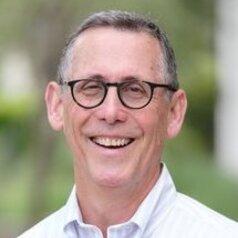
Daniel Lewis
Lecturer in History, California Institute of Technology
Dan Lewis is the full-time Dibner Senior Curator for the History of Science & Technology at the Huntington Library in San Marino, California. He is a writer and an environmental historian who has taught at Claremont Graduate University as an Associate Research Professor, and at USC in both the Organismic Biology and History departments. He also teaches at NYU Abu Dhabi every January, offering a course on birds in endangered ecosystems.
Lewis is the author of four books and the co-author of another. His most recent book, on twelve species of trees from around the world, is forthcoming from Simon & Schuster in the Spring of 2024.
He has held post-docs at at Oxford, the Smithsonian, the Rachel Carson Center in Munich, and elsewhere. Lewis also served as Chief Curator of Manuscripts for the Huntington for six years. His permanent exhibition Beautiful Science: Ideas that Changed the World was named as the best exhibition in America by the American Association of Museums the year after it opened. Lewis won an Emmy in 2020, as a producer for KCET's "Women in Aerospace" program. He is also a Commissioner for the IUCN's Species Survival Commission, as a Bird Red List Authority member, 2021–2025.
Less ![]()
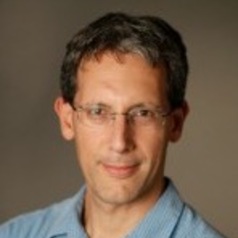
Daniel Lidar
Professor of Electrical Engineering, Chemistry, and Physics & Astronomy, University of Southern California
Daniel Lidar holds the Viterbi Professorship in Engineering and is a Professor of Electrical Engineering, Chemistry, and Physics & Astronomy at USC, where he has been since July 2005. He received a Ph.D. in Theoretical Physics from the Hebrew University of Jerusalem in 1997. He was a postdoctoral fellow at UC Berkeley from 1997 to 2000. In 2000 he joined the faculty at the University of Toronto as an Assistant Professor of Theoretical Chemistry with cross appointments in Physics and Mathematics, and was promoted with tenure to the rank of Associate Professor in 2004. His research focuses on the control of quantum systems, with a particular emphasis on quantum information processing and computation.
Lidar is the founding and current Director of the USC Center for Quantum Information Science & Technology, and the co-Director of the USC-Lockheed Martin Quantum Computing Center. He is the recipient of a number of awards and honors, including Canadian Institute for Advanced Research Top Twenty Researchers under Age 40 (2002), Sloan Foundation Research Fellow (2003), Outstanding Referee of the American Physical Society (2009), John Simon Guggenheim Foundation Guggenheim Fellowship (2017), and California Institute of Technology Moore Distinguished Scholar in Physics (2017). He is an elected Fellow of the American Physical Society (APS, 2007), the American Association of Advancement of Sciences (AAAS, 2012), and the Institute of Electrical and Electronics Engineers (IEEE, 2014). He served a term as the Chair of the American Physical Society Topical Group on Quantum Information.
Lidar is the author or co-author of more than 250 technical research articles and holds six patents.
Less ![]()

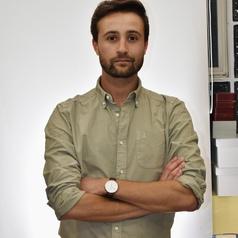
Daniel Maeso Miguel
Doctorando en biomedicina y oncología molecular, Universidad de Oviedo
Graduado en Ciencias Biomédicas por la Universidad de Lleida. Promoción 2013 - 2017
Máster en Biomedicina y Oncología Molecular por la Universidad de Oviedo. Promoción 2017-2018
Doctorando en el Programa de Doctorado Oficial en Biomedicina y Oncología Molecular de la Universidad de Oviedo, investigando en cáncer y envejecimiento en el Laboratorio del Doctor Carlos López Otín
Less ![]()
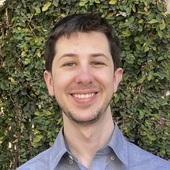
- Market Data





















